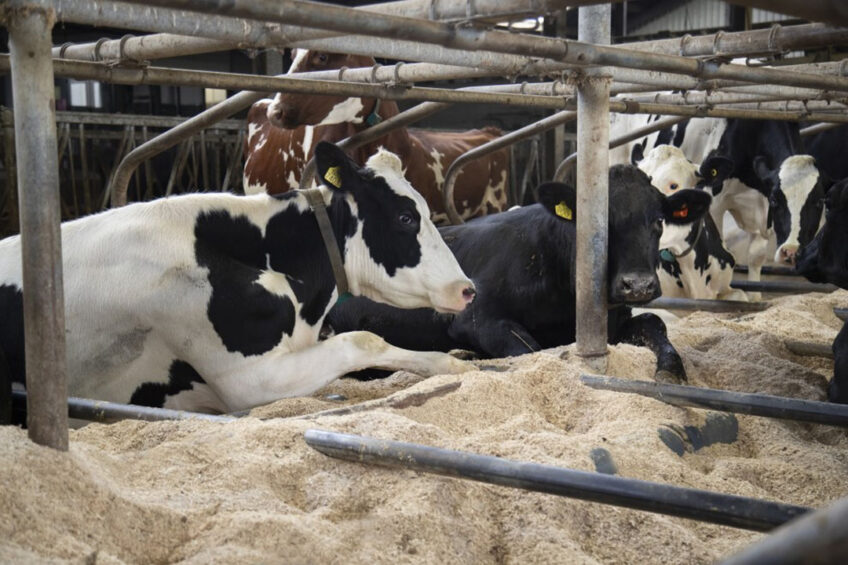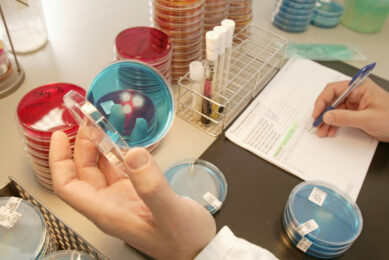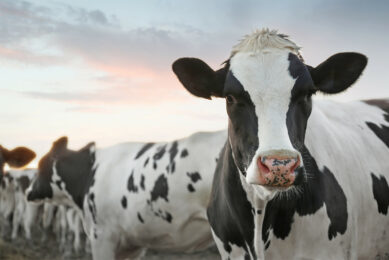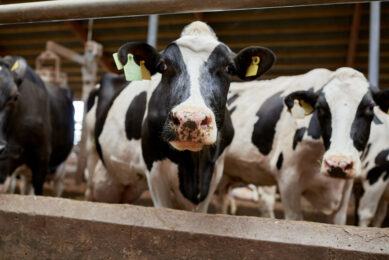UK falling behind EU on-farm antibiotic rules

Save our Antibiotics group has called on the British government to ensure on-farm antibiotics rules are at least as good as those across the European Union.
This comes as new laws introduced on 28 January across the EU mean that the UK’s regulations differ and are weaker than those of the EU’s, despite the government previously announcing in parliament that it planned to implement similar rules.
Routine antibiotics permitted
Save our Antibiotics has highlighted 4 areas where the UK’s rules are now significantly behind those of the EU:
- It is still legal to give antibiotics to farm animals routinely in the UK, but this is illegal in the EU. Preventative group treatments of farm animals is legal in the UK but is illegal in the EU.
- The UK can still legally import animals produced with antibiotic growth promoters while this cannot be done in the EU.
- UK vets and farmers can give antibiotics to farm animals to compensate for inadequate husbandry, lack of care or poor hygiene, but this is now illegal in the EU.
Save our Antibiotics said that while it had major concerns that the EU’s new legislation would not be implemented properly because of lack of preparation among farmers around the scale of husbandry changes, it was motivated by the global antibiotic resistance crisis. Scientists say this is causing 1 million deaths a year globally. However, the rules also have the potential to improve the health and welfare of millions of farm animals across the EU, it said.
The government said that this year it will be consulting on major changes to the Veterinary Medicines Regulations, including changes to the rules governing farm antibiotic use. The livestock industry has said that over the last 6 years the use of antibiotics on UK farms has fallen by about 50% and is now lower than in many EU countries under various voluntary initiatives.
Voluntary initiatives are vulnerable
But Save our Antibiotics argues in its paper that without a legal framework, this voluntary progress is vulnerable to market pressures and can be easily reversed. It highlights the government’s policy of seeking trade deals with countries like Australia and the US, which have lower standards of animal welfare, continue to use antibiotic growth promoters, and have far higher overall farm antibiotic use per animal unit, which could lead to cheaper meat imports. This could undercut UK farmers and force them to reduce their own health and welfare standards and increase their preventative use of antibiotics as insurance against disease.
Over the past 2 years, Save our Antibiotics says UK farm antibiotic use has stabilised at a level that is far higher than “sustainable nor necessary”, particularly in intensive pig production. Antibiotic use in the pig industry is 2.5 times higher than in Denmark or the Netherlands and over 6 times higher than in Sweden.
It is calling on the UK government to introduce legislation to ensure British rules concerning on-farm antibiotics are at least as good as those of the EU, ensuring that animal husbandry is sufficient to enable the end of all forms of routine antibiotic use.
The new UK rules should:
- Ban all forms of routine antibiotic use.
- Ban preventative group treatment of farm animals.
- Prohibit using antibiotics to compensate for poor animal husbandry and poor hygiene
- Improve animal welfare regulations so farm animals are kept in healthy, low-stress conditions where routine disease can be avoided, including lower stocking densities, a higher minimum weaning age for piglets, and rules on better animal genetics.
- Ban the importation of animal food produced with antibiotic growth promoters, and phase out the importation of animal foods produced with preventative group treatments and other forms of routine antibiotic use.
- Ban the use of zinc oxide at high therapeutic doses in piglet feed.
“…a leading proponent of responsible use of antibiotics”
The Responsible Use of Medicines in Agriculture (RUMA) said there will “always be some instance and conditions that unavoidably require the treatment of groups of animals to help protect their health and welfare. RUMA believes that it is important for vets to have medicines available to tackle disease and ensure animal health and welfare, following the principles of responsible use: as little as possible, but as much as necessary, at the right time and in the right situations.”
Join 13,000+ subscribers
Subscribe to our newsletter to stay updated about all the need-to-know content in the dairy sector, two times a week.










